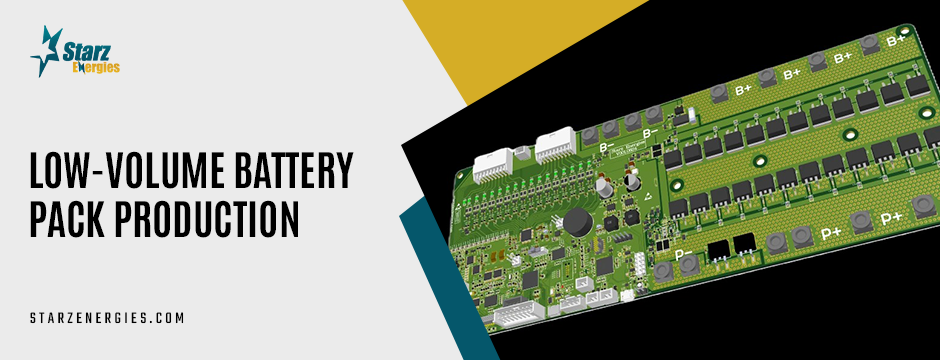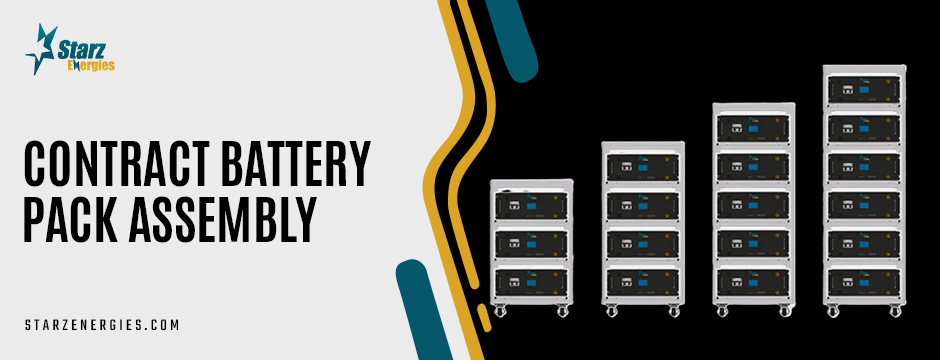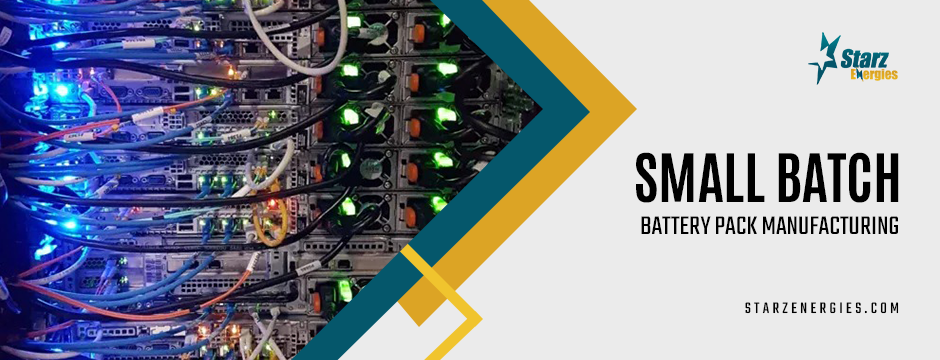
Blog
July 25, 2025
Why Low-Volume Battery Pack Production is Ideal for Startups and Pilot Projects
Startups and R&D teams often work with fresh ideas. They explore new product lines or technologies that are still evolving. At this stage, committing to high-volume production can be risky and expensive. That’s where low-volume battery pack production fits in perfectly. By choosing small production runs, teams gain room to experiment, adapt designs, and make changes without waste. It’s a smarter path when the product is not yet final. There’s no pressure to order thousands of units. Instead, you get just enough to test, improve, and move forward at your own pace. This approach reduces upfront costs and lets startups stay lean. Plus, it gives the flexibility to tweak the battery design after each round of testing. It’s a great match for businesses still shaping their core product.
Faster Turnaround for Critical Stages
Time matters for early-stage projects. Getting a product to market quickly can make all the difference. Low-volume battery pack production helps speed things up. With fewer units to build, the entire process becomes faster. From sourcing materials to assembly and final testing, everything happens more quickly than in high-volume runs. This means startups can move from idea to prototype in a much shorter time. If adjustments are needed, changes can be made in the next batch without major delays. In the startup world, this kind of speed and agility is a big advantage. It allows teams to gather feedback early and refine the product before scaling up.
Lower Risk, Smarter Spending
New businesses often operate with tight budgets. Every decision must count. Low-volume battery pack production offers a way to manage risk while keeping control over costs. Instead of investing heavily upfront, small batch runs allow for better planning. You don’t tie up money in unsold stock. You also avoid the risk of having to scrap large numbers of units if the design changes. This saves both money and resources. Also, it helps in forecasting future demand. If your small batch performs well in the market, you can plan the next steps with confidence. You get to scale only when you’re ready. For a startup, that kind of control matters.
Easier Customization and Engineering Support
When you produce in smaller quantities, customization becomes easier. You can adjust the design, shape, power output, or connection type to suit your exact needs. This is often hard to do with mass manufacturing. For pilot projects or niche products, this is a big win. Each prototype may need slight differences. Low-volume battery pack production allows engineers to fine-tune the pack without worrying about holding up a massive line. Working with experienced partners also means you get access to hands-on support. At Starz Energies, for example, custom battery design is part of our core offering. We work closely with clients to match the battery pack with their product’s needs. That level of care is hard to get with high-volume suppliers.
Smooth Transition from Prototype to Production
Startups usually begin with a concept. They build a working prototype, test it, and then aim to launch. But jumping from a one-off prototype to full-scale production is a big leap. Low-volume battery pack production acts as the middle step. It allows teams to test in real-world conditions using near-final products. These test runs uncover how the battery behaves in different environments, under load, and over time. Feedback from these trials helps refine the design before it moves to mass production. This gradual ramp-up reduces surprises later. It ensures the final product is stable, tested, and reliable. It also makes investors and early customers more confident in the product’s quality.
Ideal for Specialized Applications
Some products are meant for niche uses. Think medical devices, lab equipment, or defense applications. These don’t need thousands of battery packs at once. They need precision, quality, and performance, without bulk production. Low-volume battery pack production makes sense here. It supports tight tolerances and detailed specs. It also ensures quality control stays high across every single unit. In fields where failure isn’t an option, that kind of attention to detail matters more than scale. For example, a sensor used in a research lab or a portable medical device might only need 50 units a year. But each must work perfectly. Small batch production ensures they do.

Better Quality Control at Every Step
Smaller production runs make it easier to keep an eye on quality. Each unit can be checked more thoroughly. There’s less room for error, and if something goes wrong, it’s caught early. This is especially useful in contract battery pack assembly, where different projects require unique configurations. With smaller batches, assembly teams can focus more on each step, from wiring to insulation to final testing. For startups still proving their product’s worth, every detail counts. Delivering reliable battery performance from day one builds trust with early users.
Room for Innovation and Growth
Innovation doesn’t always happen in a straight line. Many products go through several versions before hitting the market. Low-volume battery pack production supports this trial-and-error process.
You’re free to experiment without large financial risks. Each small batch gives insights, feedback, and new ideas. It creates a cycle of learning and refining. Over time, you arrive at a better, more stable solution. This is also useful in small batch battery pack manufacturing, where technology changes quickly. As newer cells or materials come out, you can adopt them faster without wasting old stock. For example, switching from cylindrical to pouch cells or adding smarter battery management systems (BMS) becomes easier when you’re not locked into a large inventory.
Partnering with the Right Experts
Low-volume production works best when done with the right partner. You need a team that understands your needs, is open to feedback, and delivers consistent quality. At Starz Energies, our focus is on building solutions that grow with your project. We don’t just supply parts—we collaborate to find what fits. Whether it’s adjusting a battery layout or fine-tuning the BMS, our approach is flexible and hands-on. Startups often need that extra layer of support. With a dedicated partner, you avoid delays, reduce errors, and keep your project on track. You also benefit from our years of experience in helping early-stage companies take their ideas to market.

Scalability When You’re Ready
The best part? Low-volume battery pack production doesn’t limit your future. Once your product is final and the market is ready, you can scale up. But now, you’re doing it with confidence. You’ve already tested the waters. You know what works. Your team has experience managing the design. You’ve got user feedback. All this helps in making a smooth shift to higher volumes, whether through in-house production or contract assembly. That’s the value of starting small. You grow with purpose, not pressure.
Final Thoughts
For startups and pilot projects, low-volume battery pack production is not just an option—it’s often the smartest path. It gives flexibility, saves money, and speeds up development. It reduces risk while building stronger, better-tested products. Whether you’re refining a prototype, launching a new device, or testing the market, this approach gives you the space to do it right. Starz Energies supports innovators at every stage of their journey. If you’re looking for battery packs built for your pace, your product, and your goals, explore our custom low-volume production services today.
FAQ
About Starz Energies
Starz Energies is the first lithium-ion battery manufacturer in Tunisia, and in North Africa, to venture in energy storage solutions. Starz is applying its R&D expertise to provide more efficient, greener, and more affordable lithium-ion batteries.
Learn MoreShare This Post
Related Post
October 3, 2025 • 7 minutes read
Top Considerations When Choosing Battery Solutions for OEMs in Industrial Applications
September 26, 2025 • 9 minutes read
How Battery Thermal Management Systems Extend the Lifespan of Lithium-Ion Packs
September 19, 2025 • 6 minutes read
Modular Design Approaches in BMS Board Production for Utility-Scale Projects
